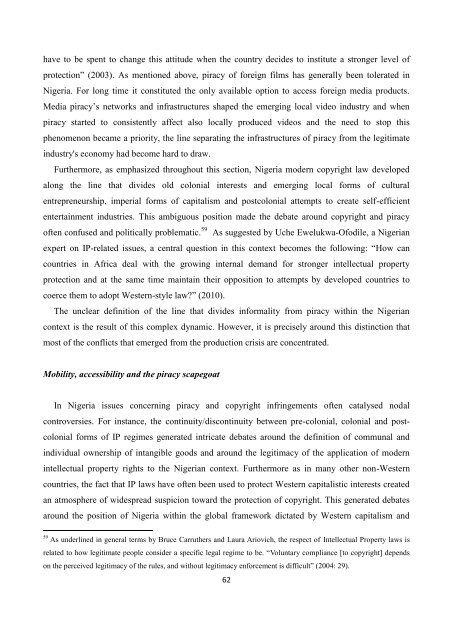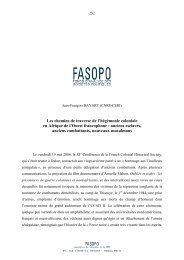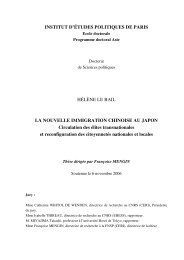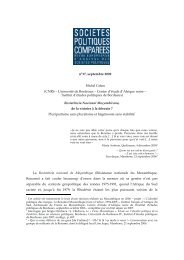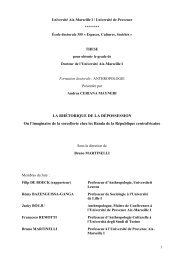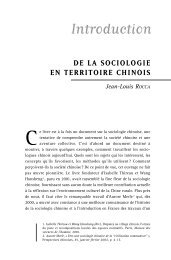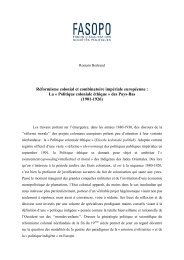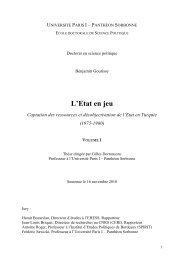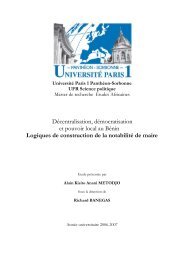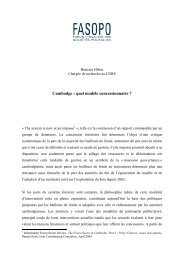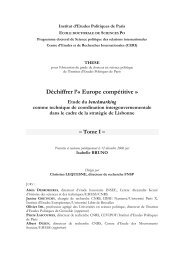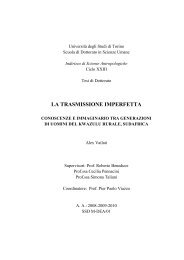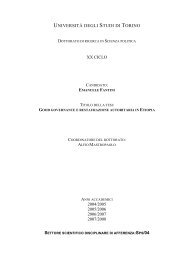Create successful ePaper yourself
Turn your PDF publications into a flip-book with our unique Google optimized e-Paper software.
have to be spent to change this attitude when the country decides to institute a stronger level ofprotection” (2003). As mentioned above, piracy of foreign films has generally been tolerated inNigeria. For long time it constituted the only available option to access foreign media products.Media piracy’s networks and infrastructures shaped the emerging local video industry and whenpiracy started to consistently affect also locally produced videos and the need to stop thisphenomenon became a priority, the line separating the infrastructures of piracy from the legitimateindustry's economy had become hard to draw.Furthermore, as emphasized throughout this section, Nigeria modern copyright law developedalong the line that divides old colonial interests and emerging local forms of culturalentrepreneurship, imperial forms of capitalism and postcolonial attempts to create self-efficiententertainment industries. This ambiguous position made the debate around copyright and piracyoften confused and politically problematic. 59 As suggested by Uche Ewelukwa-Ofodile, a Nigerianexpert on IP-related issues, a central question in this context becomes the following: “How cancountries in Africa deal with the growing internal demand for stronger intellectual propertyprotection and at the same time maintain their opposition to attempts by developed countries tocoerce them to adopt Western-style law?” (2010).The unclear definition of the line that divides informality from piracy within the Nigeriancontext is the result of this complex dynamic. However, it is precisely around this distinction thatmost of the conflicts that emerged from the production crisis are concentrated.Mobility, accessibility and the piracy scapegoatIn Nigeria issues concerning piracy and copyright infringements often catalysed nodalcontroversies. For instance, the continuity/discontinuity between pre-colonial, colonial and postcolonialforms of IP regimes generated intricate debates around the definition of communal andindividual ownership of intangible goods and around the legitimacy of the application of modernintellectual property rights to the Nigerian context. Furthermore as in many other non-Westerncountries, the fact that IP laws have often been used to protect Western capitalistic interests createdan atmosphere of widespread suspicion toward the protection of copyright. This generated debatesaround the position of Nigeria within the global framework dictated by Western capitalism and59 As underlined in general terms by Bruce Carruthers and Laura Ariovich, the respect of Intellectual Property laws isrelated to how legitimate people consider a specific legal regime to be. “Voluntary compliance [to copyright] dependson the perceived legitimacy of the rules, and without legitimacy enforcement is difficult” (2004: 29).62


